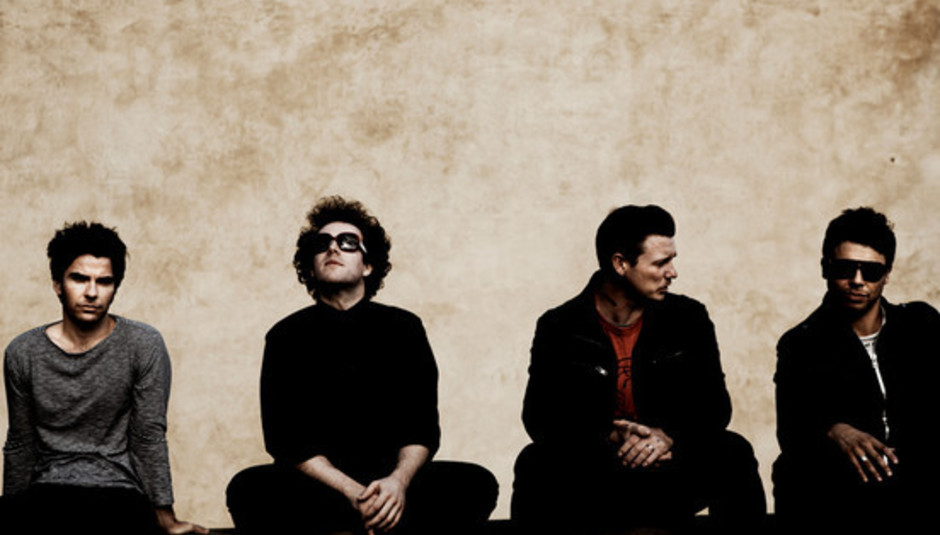There’s a new Stereophonics album out - a really good one. Time was when that sentence would be barely conceivable. The Welsh trio (now a quartet) were amongst the last wave of genuinely massive bands to come out of the dying hiccups of the Britpop era, going on to headline festivals, sell out stadiums and shift an astounding amount of records. Frontman Kelly Jones' knack for succinct narratives and wry observations, combined with a gift for everyman choruses and a gravelly larynx translated from indie clubs to your Dad’s record collection easily. Two albums of impassioned indie rock sent them stratospheric, a third of melancholy acoustic musings, with a jollier one in the middle that went “ba-ba-da-ba-ba-ba-da-da” pushed them further and a well-timed cover of a forgotten Faces tune, ‘Handbags and Gladrags’, released by lucky coincidence just as Ricky Gervais chose the same song for the theme to The Office nudged them into ubiquity.
Of course, by now the critical backlash was in full swing. The band had long stopped being anywhere close to cool. Hipsters despised them and weekly music mags ridiculed them. But by this point their audience was above that anyway: their crowd were £50 men, builders, hairdressers, lorry drivers, school kids, in short - actual people with no time for music press snobbery. A fourth album emerged, tinged with 70s rock and soul excess produced by Jones himself, and a slow, gradual slide from the commercial heights began. Drummer Stuart Cable was fired due to his booze habit, but the band bounced back with their leanest, poppiest single in ‘Dakota’. It was something of a critical last hurrah. Subsequent records were met with indifference, their label V2 sank at just the wrong moment on the release of their sixth record Pull The Pin, which sold disappointingly. Former drummer Cable (Jones’ best friend) sadly died in 2010, although fortunately after the two had reconciled. Stereophonics went to ground.
Now, sixteen years after the release of their debut comes Graffiti On The Train, a record soaked in drama and sadness that is easily the strongest thing Stereophonics have done in years. Cable’s death, alongside Jones burgeoning career as a screenwriter have combined to make a record that feels cinematic and personal, with much of the narrative sense that drove their debut Word Gets Around. We joined Kelly Jones for a trip back in time in attempt to join the dots between those two records, one album at a time.
Grafitti On The Train (2013)
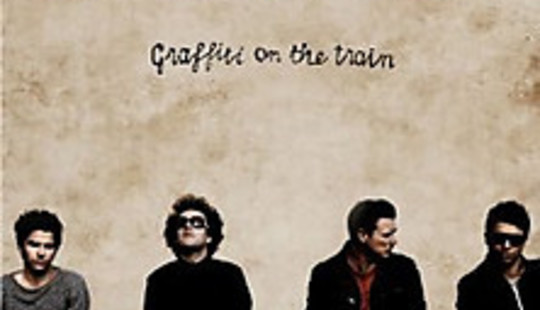 KELLY JONES: “It’s a record that’s got a very free sense to it, and it does paint a lot of pictures in your mind. It was the first year we didn’t go on tour for about 16 years and we just found this little space which we made into a studio. It was quite nice just to go into the studio to make music without thinking about what it’s going to be used for. We didn’t think about radio, we didn’t think about TV, we didn’t think about where it would fit on any playlist. We’d come off the back of a greatest hits thing and we felt like we’d kind of done that. It felt like making a debut again, without thinking of making it for anything or anybody. By doing that we surprised ourselves. When you empty your head from the clutter of touring and the chaos it’s amazing what comes into it. It just became this very free process. It started to become quite cinematic, and I was writing it at the same time as this screenplay I’m working on and they just kind of bounced off each other. It reminds me of making Word Gets Around. I don’t know if that’s because we stopped for a year, or because we got fed up with the industry a bit and didn’t give a shit what people thought, and when you make your first record it’s not in the industry. This record did remind me of the feeling of making a debut, the freedom of it.”
KELLY JONES: “It’s a record that’s got a very free sense to it, and it does paint a lot of pictures in your mind. It was the first year we didn’t go on tour for about 16 years and we just found this little space which we made into a studio. It was quite nice just to go into the studio to make music without thinking about what it’s going to be used for. We didn’t think about radio, we didn’t think about TV, we didn’t think about where it would fit on any playlist. We’d come off the back of a greatest hits thing and we felt like we’d kind of done that. It felt like making a debut again, without thinking of making it for anything or anybody. By doing that we surprised ourselves. When you empty your head from the clutter of touring and the chaos it’s amazing what comes into it. It just became this very free process. It started to become quite cinematic, and I was writing it at the same time as this screenplay I’m working on and they just kind of bounced off each other. It reminds me of making Word Gets Around. I don’t know if that’s because we stopped for a year, or because we got fed up with the industry a bit and didn’t give a shit what people thought, and when you make your first record it’s not in the industry. This record did remind me of the feeling of making a debut, the freedom of it.”
Keep Calm And Carry On (2009)
UK sales: 165,000
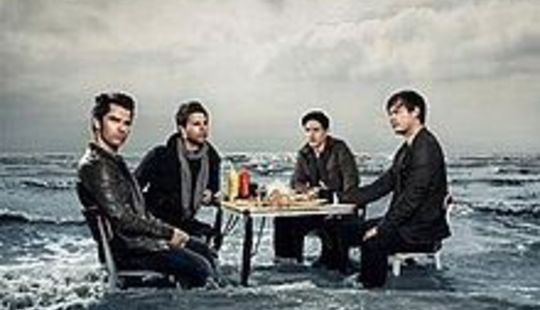 KJ: “It began with just me and [producer] Jim Abbiss in a room with a drum machine. What I remember most about it is when I brought the boys in the band in to do the record he didn’t feel as comfortable as he had when it was just me and him, and there was quite a weird vibe, not with the band because we’re quite clique-y, but between him and the situation. So what the record became more was people playing on top of a demo we’d already created. I learnt a lot about time signatures and new ways of arranging songs. I love songs like ‘Could You Be The One’, ‘Show Me how’, ‘Stuck In a Rut’, but I think it’s a very light record on the front of band energy. We were following a greatest hits, and the record company obviously wanted this record to do what a greatest hits does, and that was our biggest mistake. Universal released it in fucking December thinking it would compete with everyone else's greatest hits and X-Factor albums, so it never got on the radio, it never got success. There’s a handful of songs I’m proud of, but it was the wrong record company for the wrong album and it didn’t really work.”
KJ: “It began with just me and [producer] Jim Abbiss in a room with a drum machine. What I remember most about it is when I brought the boys in the band in to do the record he didn’t feel as comfortable as he had when it was just me and him, and there was quite a weird vibe, not with the band because we’re quite clique-y, but between him and the situation. So what the record became more was people playing on top of a demo we’d already created. I learnt a lot about time signatures and new ways of arranging songs. I love songs like ‘Could You Be The One’, ‘Show Me how’, ‘Stuck In a Rut’, but I think it’s a very light record on the front of band energy. We were following a greatest hits, and the record company obviously wanted this record to do what a greatest hits does, and that was our biggest mistake. Universal released it in fucking December thinking it would compete with everyone else's greatest hits and X-Factor albums, so it never got on the radio, it never got success. There’s a handful of songs I’m proud of, but it was the wrong record company for the wrong album and it didn’t really work.”
Pull The Pin (2007)
UK sales: 200,000
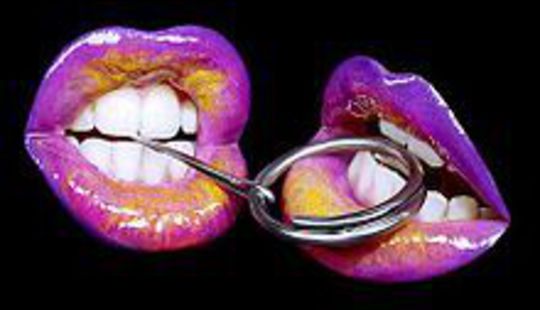 KJ: “Pull The Pin was quite a heavy record, a heavy guitar record. It was recorded after a period where I’d had to take ten months off because there was an illness in my family, and I remember us going over to Grouse lodge in Ireland and feeling I was just glad to be out of the country. It was recorded very quickly, in about ten days - almost a live album in many aspects. I felt ‘It Means Nothing’ was good, and ‘Daisy Lane’ was good. We don’t play many songs off that album live anymore. I don’t know why. That’s when V2 records got sold as well, so that was a weird record in terms of how many people got to hear it.
KJ: “Pull The Pin was quite a heavy record, a heavy guitar record. It was recorded after a period where I’d had to take ten months off because there was an illness in my family, and I remember us going over to Grouse lodge in Ireland and feeling I was just glad to be out of the country. It was recorded very quickly, in about ten days - almost a live album in many aspects. I felt ‘It Means Nothing’ was good, and ‘Daisy Lane’ was good. We don’t play many songs off that album live anymore. I don’t know why. That’s when V2 records got sold as well, so that was a weird record in terms of how many people got to hear it.
Those two records I think are the least fulfilled in the public sense, you know? But there’s moments on both I’m proud of. It’s about timing and about place, and you can’t go around blaming anything. If it hasn’t happened it hasn’t happened. ”
Language. Sex. Violence. Other? (2005)
UK sales: 500,000+
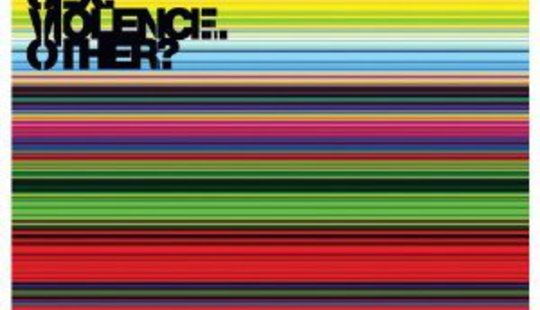 KJ: “It’s a very modern and angular record. It just kind of came that way really. You’ve Gotta Go There To Come Back had a very 70s, Stevie Wonder, rock overdub feel, and even though that’s one of my favourite records I knew it had to be brought back to a more modern sound, otherwise we were going to slip into the ether, becoming what would be seen as an older band, and I didn’t want that to happen - we were only 30 years of age at that point.
KJ: “It’s a very modern and angular record. It just kind of came that way really. You’ve Gotta Go There To Come Back had a very 70s, Stevie Wonder, rock overdub feel, and even though that’s one of my favourite records I knew it had to be brought back to a more modern sound, otherwise we were going to slip into the ether, becoming what would be seen as an older band, and I didn’t want that to happen - we were only 30 years of age at that point.
To get your first number one single with ‘Dakota’, in 2005, after you’ve lost your main band member was a severe jab in the arm. Also we took it back to a three piece, because we’d gone from a five piece with three backing singers, an eight piece band, where even I didn’t know who was in the fucking band any more... so to take it back to three people again and re-energise the band, doing Live8 and things, it was a new start really.
It’s [‘Dakota’] the only song in 18 years that I’ve written in an hour and a half and texted the guy from the record company saying, “I think I’ve got one here”. It’s the only time it’s ever happened. You really hope for that moment to come again. That record was very different - we changed a lot. We made every song title one word. I found an artist online called Graham Rounthwait and had him change the whole look of the art, it was a complete restart for me, that record.
You Gotta Go There To Come Back (2003)
UK Sales: Double Platinum (600,000+)
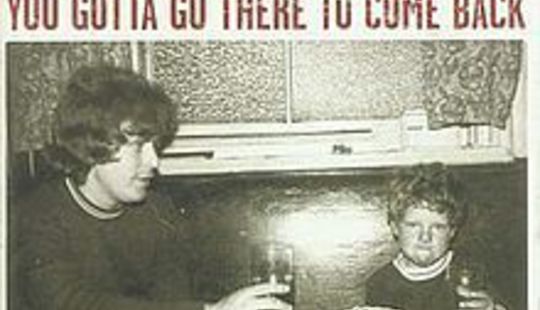 KJ: “I was really into soul music - it’s not something I’m ashamed about. I was brought up on Stevie Wonder and I love Talking Book and all the overdubs on it, and all that freestyling Marvin Gaye thing. I’d always wanted to make a record like that, and this was the first one I produced so that’s probably why I went “Fuck it I’m just going to do it”. As an experience it was the best recording experience we ever had, until this one. All the crew were in the room, all the girlfriends were in the room, all the band were there, it was the best recording session ever. It just felt like a fucking really good time, and when I listen back to it I still have those memories, but it was very much of a time and for a certain audiences. I still love that record, but it’s definitely a record focused on my older brothers record collection.”
KJ: “I was really into soul music - it’s not something I’m ashamed about. I was brought up on Stevie Wonder and I love Talking Book and all the overdubs on it, and all that freestyling Marvin Gaye thing. I’d always wanted to make a record like that, and this was the first one I produced so that’s probably why I went “Fuck it I’m just going to do it”. As an experience it was the best recording experience we ever had, until this one. All the crew were in the room, all the girlfriends were in the room, all the band were there, it was the best recording session ever. It just felt like a fucking really good time, and when I listen back to it I still have those memories, but it was very much of a time and for a certain audiences. I still love that record, but it’s definitely a record focused on my older brothers record collection.”
Just Enough Education To Perform (2001)
UK Sales: Five x Platinum (1,750,000+)
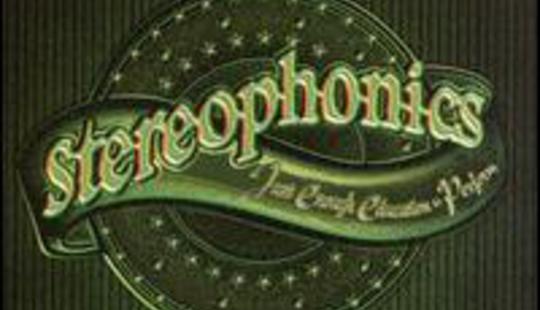 KJ: “With Just Enough Education To Perform I loved the title and I loved what it was trying to say. I don’t know if we achieved it fully. It was the first time the band had started to grow up. Stuart had got married. He wasn’t there for four weeks of the session and it was starting to feel separate within the camp. Up until then we’d all share the same hotels and rooms and vibes, and all be in the same boat together, and then you start to become more adult and things start changing. Then you get insecure in your little circle because there’s influence coming in from outside and it changes the dynamic and it takes time to pull that dynamic back to what’s important - which is the band - and I think that album is definitely the first time that happened. It is where it gets weird, because it’s the first time you’re traveling the world, all of a sudden you’re playing arenas and then stadiums, and no-one anticipated any of that. One minute you’re in a bar, the next it’s a stadium, and you’re not sure why you’re there. We certainly didn’t feel comfortable in it because we didn’t understand it. When you’re in a band and you’re that young and that big you’re constantly thinking somebody’s out to get you, and you’re never quite relaxed onstage in those big rooms. So it took us a while to get used to that and accept that people just liked the songs.
KJ: “With Just Enough Education To Perform I loved the title and I loved what it was trying to say. I don’t know if we achieved it fully. It was the first time the band had started to grow up. Stuart had got married. He wasn’t there for four weeks of the session and it was starting to feel separate within the camp. Up until then we’d all share the same hotels and rooms and vibes, and all be in the same boat together, and then you start to become more adult and things start changing. Then you get insecure in your little circle because there’s influence coming in from outside and it changes the dynamic and it takes time to pull that dynamic back to what’s important - which is the band - and I think that album is definitely the first time that happened. It is where it gets weird, because it’s the first time you’re traveling the world, all of a sudden you’re playing arenas and then stadiums, and no-one anticipated any of that. One minute you’re in a bar, the next it’s a stadium, and you’re not sure why you’re there. We certainly didn’t feel comfortable in it because we didn’t understand it. When you’re in a band and you’re that young and that big you’re constantly thinking somebody’s out to get you, and you’re never quite relaxed onstage in those big rooms. So it took us a while to get used to that and accept that people just liked the songs.
It was kind of a mix between two different camps, really. You had ‘Mr Writer’ which was a sound we’d never done before, it was very different and the video was very odd, it upset a lot of people, even though it was about one fucking guy it seemed to upset a whole fucking industry and I’ve been paying the price ever since. But that was me being the angry man I was at the time. But also on that record you had stuff like ‘Step On My Old Size Nines’...very Neil Young influenced, ‘Caravan Holiday’, and stuff like ‘Have A Nice Day’. I didn’t want to put ‘Have A Nice Day’ on the album, I didn’t think it suited the record. I loved the story because it was dark, but dressed up in a very pop way. I wasn’t convinced it was the right song for that record, but obviously the record company were very convinced.
It’s fucking weird, because you write songs and you don’t have the power over what you write sometimes. It’s hard to explain, because even as a writer you don’t like some of the things you write, and as much as I’m proud of the effect it has on certain people and how it can make people happy, at the same time I’m glad ‘Dakota’ came after it, because ‘Dakota’ is something I’m proud about playing all the time, and that gets more than ‘Have A Nice Day’ does live. Before that it was ‘Have A Nice Day’ people knew us for. ‘Dakota’ still gives people that euphoric feeling, but it’s not annoying in anyway, I find ‘Have A Nice Day’ a little bit annoying.”
Performance And Cocktails (1999)
UK Sales: Five x Platinum (1,750,000+)
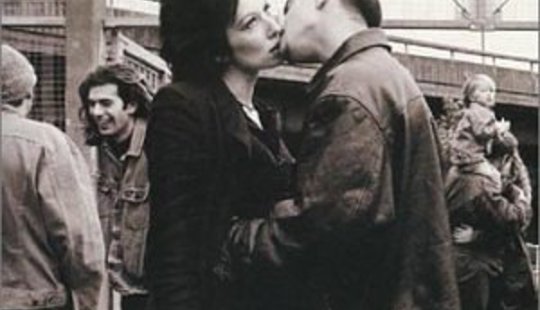 KJ: “All that album was written on the road touring Word Gets Around. Some songs I’d actually forgotten - I had them on a dictaphone. I played it back the day before we went into the session and I found ‘Bartender’ and ‘Stop To Fill My Car Up’. I used to record a lot but never listened back a lot. ‘Bartender’ was a great first single for the record. It was a big sounding album, at that point a lot of bands like Pearl Jam and Nirvana were a big influence to us, we had Al Clay mix the record and mastered in the states. The Prodigy was a big influence as well on songs like ‘Roll Up and Shine’, Smashing Pumpkins as well. It’s a fucking big sounding record. So production wise we’d gone up a level since the first album, you know, though it was the same team. It was definitely the benchmark record for us, it was our The Bends, or our What’s the Story, it was the quintessential Stereophonics record to have at that point. It’s almost like people bought that and went back and got Word Gets Around. A lot of people found this on TV and radio. It was like how people would discover Nevermind and then go back and find Bleach.”
KJ: “All that album was written on the road touring Word Gets Around. Some songs I’d actually forgotten - I had them on a dictaphone. I played it back the day before we went into the session and I found ‘Bartender’ and ‘Stop To Fill My Car Up’. I used to record a lot but never listened back a lot. ‘Bartender’ was a great first single for the record. It was a big sounding album, at that point a lot of bands like Pearl Jam and Nirvana were a big influence to us, we had Al Clay mix the record and mastered in the states. The Prodigy was a big influence as well on songs like ‘Roll Up and Shine’, Smashing Pumpkins as well. It’s a fucking big sounding record. So production wise we’d gone up a level since the first album, you know, though it was the same team. It was definitely the benchmark record for us, it was our The Bends, or our What’s the Story, it was the quintessential Stereophonics record to have at that point. It’s almost like people bought that and went back and got Word Gets Around. A lot of people found this on TV and radio. It was like how people would discover Nevermind and then go back and find Bleach.”
Word Gets Around (1997)
Uk Sales: Double Platinum (600,000+)
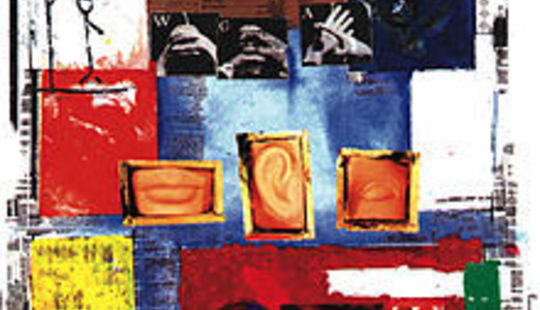 KJ: “I haven’t listened to it for a long time. When we do rehearsals for tours and stuff we’ll go back over some of the albums to hear songs we haven’t done for a long time, because some of the band members obviously weren’t there at the beginning, but with Word Gets Around it’s so ingrained in me I don’t really need to listen to it. It’s the album that defines who we are, where we came from, the one die hard Stereophonics fans will probably say we’ll never beat. It’s that record. It’s a very important record as a stamp in what we are. ‘Local Boy In the Photograph’, ‘Thousand Trees’, ‘Traffic’, ‘Billy Davies Daughter’, they’re all very story led. I never in my wildest dreams imagined people singing back ‘Thousand Trees’ to us, because there’s so many words in it, I can’t even remember them. When I see people singing it back it blows my fucking mind. It’s not a singalong, but it’s become one. I had no idea. When I was 18 and sat on the floor in my brothers room writing ‘Local Boy In The Photograph’, ‘Thousand Trees’, ‘Too Many Sandwiches’, ‘She Takes Her Clothes Off’, and they were just coming and coming and coming, it was an amazing time for writing. I guess I just had to get all these stories I’d heard in that town out.
KJ: “I haven’t listened to it for a long time. When we do rehearsals for tours and stuff we’ll go back over some of the albums to hear songs we haven’t done for a long time, because some of the band members obviously weren’t there at the beginning, but with Word Gets Around it’s so ingrained in me I don’t really need to listen to it. It’s the album that defines who we are, where we came from, the one die hard Stereophonics fans will probably say we’ll never beat. It’s that record. It’s a very important record as a stamp in what we are. ‘Local Boy In the Photograph’, ‘Thousand Trees’, ‘Traffic’, ‘Billy Davies Daughter’, they’re all very story led. I never in my wildest dreams imagined people singing back ‘Thousand Trees’ to us, because there’s so many words in it, I can’t even remember them. When I see people singing it back it blows my fucking mind. It’s not a singalong, but it’s become one. I had no idea. When I was 18 and sat on the floor in my brothers room writing ‘Local Boy In The Photograph’, ‘Thousand Trees’, ‘Too Many Sandwiches’, ‘She Takes Her Clothes Off’, and they were just coming and coming and coming, it was an amazing time for writing. I guess I just had to get all these stories I’d heard in that town out.
It’s a record I’m still very, very proud of, because I still can’t believe to this day that an 18 year old kid wrote some of that. I find that quite mad, when I meet 18 year old kids now I look them and can’t believe I was writing that stuff when I was that age. I find it quite alarming that certain things are achieved by someone so young.”
Myself, Stuart and Richard is Stereophonics and will always be Stereophonics. That’s the way it was born, we’d been friends for ten years before we even formed that band. Me and Stuart were living in the same street, and he’s a part of this band every day. It got to the point where it didn’t work out with him, but thankfully we all made up for the five years prior to his death. You can never replace what those first three, four albums were to the band. We functioned so much as a unit you didn’t even have to talk about it. If you experience all of these different things together you don’t have to speak to each other about it, there’s an unspoken language you can’t quite replace. I’d love to have taken the same line-up through this whole time, but for many reasons that didn’t work out. It is a different band, but I can still relate to what that time was. That’s what got me where I am, really. There’s a journey that has to happen with some bands and some gangs that evolves along the way. If you adapt with it you can still go on and make great things, but you can’t live in the past, you have to go forward.
Weirdly Graffiti On the Train is in many ways the record I was trying to make when I made Word Gets Around, in that it’s got Tom Waits' influence and Nick Cave, Elvis Costello, which were all artists I was listening to at the time but couldn’t express into Word Gets Around because I wasn’t accomplished enough as a writer or a player. That’s what’s great about Word Gets Around - the naivety of it and the sound, it’s very small and scratchy. I think the song ‘Graffiti On the Train’ itself is easily something that could have gone on Word Gets Around; it’s completely narrative, a chorus and two long verses and a chorus with the story. I could easily see me, Richard and Stuart playing that in a rehearsal room. There’s other elements I couldn’t have done, I wouldn’t have a clue what ‘Roll the Dice’ or ‘Take Me’ would be about, but ‘Indian Summer’ and ‘Graffiti’ I think I could have probably accepted at the time.”
And of course the story doesn’t end there. Twenty five songs were recorded for the new record, of which only ten made the cut for Graffiti... A sequel will be released next year, followed by the long awaited film that essentially underpins the record. Twenty years since the teenage Kelly Jones sat down in his brother's bedroom and wrote ‘Billy Davies Daughter’, he’s still got stories to tell.
Graffiti On the Train is out now.

